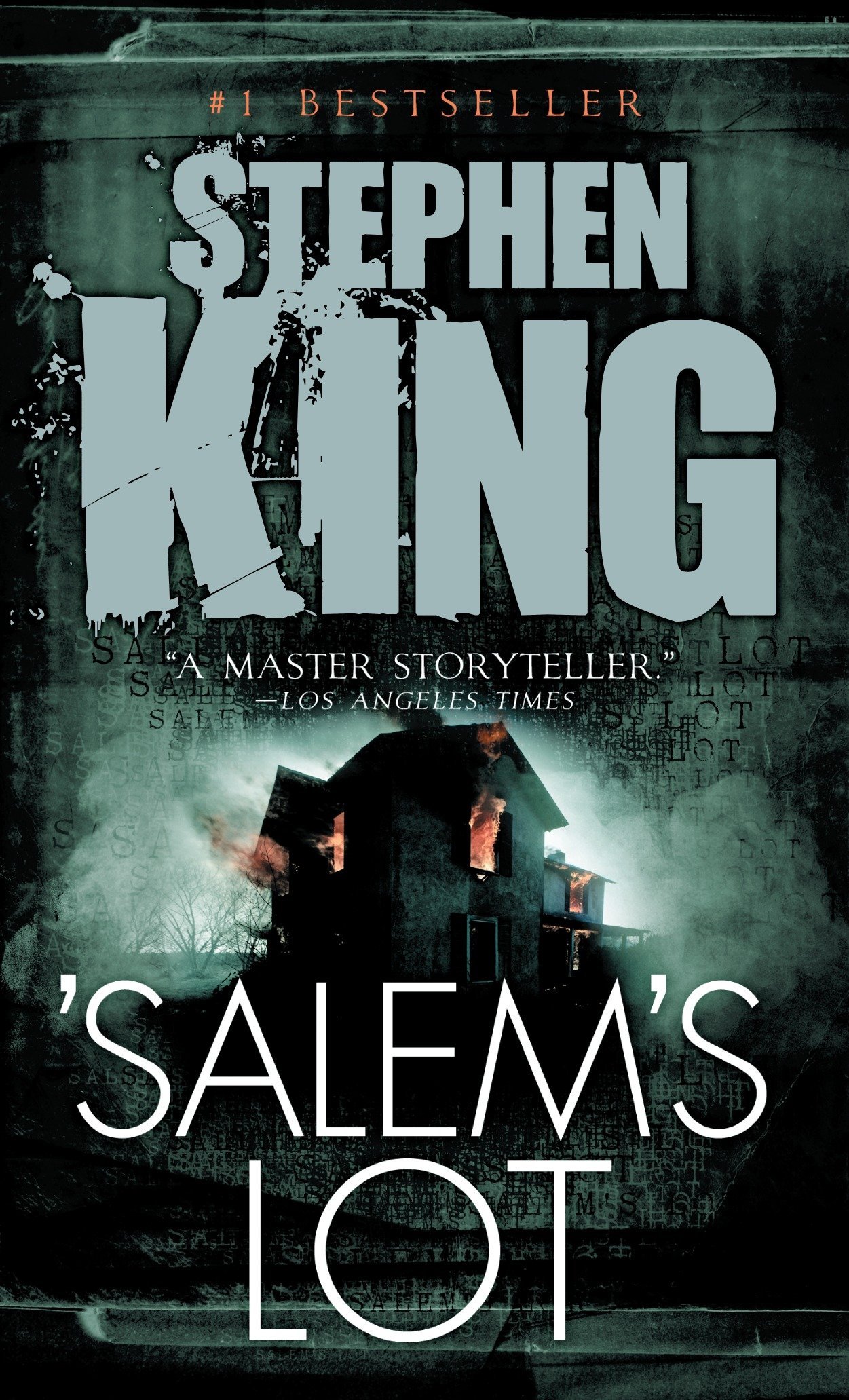The town knew about darkness.
It knew about the darkness that comes on the land when rotation hides the land from the sun, and about the darkness of the human soul.
Ben Mears is a semi-successful writer who returns to Jerusalem's Lot, Maine, where he spent several years of his youth. He returns both to idyll and nightmare: he has fond memories of the town, but he also recalls the terrifying episode in which he ventured into the spooky Marsten House, which looks down on the town, and encountered the apparition of the hanged over. He plans on writing a book inspired by the house and the town. At first his arrival seems to promise success beyond his wildest dreams, when he meets a beautiful young woman, Susie Norton, reading one of his own books in the park.
But Ben isn't the only newcomer in Jerusalem's Lot. A mysterious bald giant named Straker has recently purchased the Marsten House on behalf of himself and his mysterious partner, a man named Barlow who always seems to be on an antique-hunting trip in Europe. After people in town begin to waste away from a sudden and mysterious illness, Ben and his allies--Susie, a high school English teacher, a priest, a doctor, and a 12-year old boy--discover that Barlow is actually an ancient vampire intent on turning the town into a vampire colony.
I brought Salem's Lot with me on a recent trip to Maine, but I was so busy eating lobster rolls and looking at lighthouses I didn't really get to read it. But having finished it now, back in New York, I think one thing the novel does really well is capture the soul of a small coastal town. Like Mears, King obviously has a lot of affection for the small Maine towns of his youth, and that's reflected here in the wide angle lens that he uses. The "core cast" of the novel is really too large, but King supplements the heroes' tale with the stories of a couple dozen other townspeople: the exhausted sheriff and his overeager deputy, the creepy dump owner who likes to shoot rats, the aging boarding house owner still in love with one of her down-and-out tenants, the abused housewife who takes her frustrations out on her infant child. Salem's Lot does something that's very hard to do: it gives a convincing portrait of an entire town. It would have been really nice, actually, to read it while passing through the towns of coastal Maine.
In fact, the vampire scourge becomes a metaphor for the decay of small-town life. Jerusalem's Lot is the place for which both King and Mears have such fond nostalgia, but it's beset by the problems common to small towns throughout the country: alcoholism, addiction, poverty, industrialization, underemployment, etc., etc. Barlow and his unstoppable tide of vampires--spoiler alert, he either "turns" or kills just about every character in the book--are a physical manifestation of common horrors. The priest, Father Callahan, bemoans the "social gospel" and longs to battle with the supernatural kind of evil that tantalized him when he became a priest, but I don't buy it. There's a reason the charismatic Barlow tempts his victims with the mundane things, like sex and power, missing from the smallness of their lives.
This is only my second King novel, and though I know it's supposed to be one of his best, I found it scattered and bloated when compared with Pet Sematary. Ironically, the novel is at its best when it's sort of Dickensian, taking that wide shot of the entire town and its denizens. But I never really cared about Susie, who is the only major woman character and who's clearly set up by the narrative for gruesome sacrifice, or Ben, whose novel seemed like a red herring by the end. The vampire Barlow gets some interesting moments, but the vampires are so drawn from horror movies and cheap paperbacks that even the twelve-year old boy is already an expert in how to deal with them. It's bloody and typically merciless, but it was never quite weird enough for me.


No comments:
Post a Comment